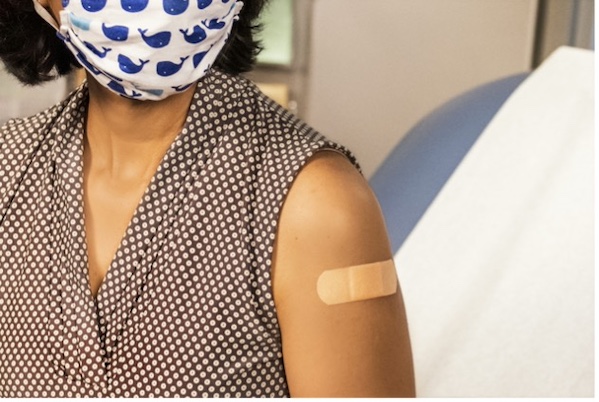Sufficient Supply of Influenza Vaccines in Shandong; Elderly Vaccination Rate at 54.57%
October 24, 2024
Source: drugdu
 301
301
 On October 22, the Shandong Provincial Government Information Office held a press conference to introduce the province's efforts in enhancing the integration of healthcare and elderly care, as well as promoting healthy aging. It was reported that Shandong currently has a sufficient supply of influenza vaccines, having completed 2.67 million doses of vaccinations, with elderly individuals accounting for 54.57% of those vaccinated.
On October 22, the Shandong Provincial Government Information Office held a press conference to introduce the province's efforts in enhancing the integration of healthcare and elderly care, as well as promoting healthy aging. It was reported that Shandong currently has a sufficient supply of influenza vaccines, having completed 2.67 million doses of vaccinations, with elderly individuals accounting for 54.57% of those vaccinated.
As the weather turns colder, infectious diseases such as influenza and pneumonia enter their peak season, and the elderly are a major susceptible group. It was noted that over 3,200 medical institutions in Shandong have activated a real-time monitoring and reporting network for infectious diseases, focusing particularly on the incidence of diseases among the elderly and other key populations.
Vaccination against influenza and pneumonia not only reduces infection risks but also effectively lowers the incidence of severe cases, making it one of the primary measures for the prevention of respiratory diseases. This year, Shandong has focused on proactive measures, arranging for localities to prepare for the procurement and reservation of influenza vaccines early. Currently, the province has sufficient vaccine supply, with 2.67 million doses administered, of which the elderly comprise 54.57%. In addition, by implementing the "Quality Improvement Action for Preventive Vaccination Services," localities are being guided to continuously optimize the layout of vaccination units, extend clinic service hours, set up green channels for elderly vaccinations, and organize special vaccination sessions for the elderly, thereby providing convenient and efficient vaccine services.
In terms of strengthening medical services for the elderly, Shandong is enhancing the coordination of medical resources. During peak seasons for respiratory diseases, medical institutions are required to keep fever clinics and respiratory outpatient services fully operational to significantly increase service availability. Moreover, geriatrics departments have been established in secondary and higher-level comprehensive hospitals to ensure that the healthcare needs of elderly patients are adequately met.
To optimize the medical service process in light of the characteristics of elderly patients, guidance is being provided to medical institutions to implement preliminary assessments, prescribe routine tests, and adopt "long prescriptions" to reduce the number of trips elderly patients need to make for treatment.
Additionally, personnel have been added in areas such as pre-examination triage and self-service kiosks to assist elderly patients. There is also a proactive application of suitable traditional Chinese medicine techniques, promoting intervention guidelines for “preventive treatment” targeted at elderly patients, especially those who are homebound or have limited mobility, providing ongoing care services.
The role of "Internet + Healthcare" is being fully leveraged, and guidance is being provided to medical institutions to adapt online medical services for elderly patients, making Internet care easier through voice input and increased manual service options. Currently, Shandong has 343 internet hospitals offering follow-up appointments, time-scheduled consultations, and medication delivery services. Elderly individuals are encouraged to take responsibility for their own health by adhering to good hygiene practices such as wearing masks scientifically, washing hands frequently, ensuring proper ventilation, and following cough etiquette, as well as getting vaccinated against influenza and pneumonia promptly. During the flu season, they should also try to avoid crowded and enclosed places to reduce the risk of infection.
https://finance.eastmoney.com/a/202410223213616562.html
By editorRead more on
- Gan & Lee Pharmaceuticals’ new PROTAC drug GLR2037 tablets have been approved for clinical trials to enter the field of prostate cancer treatment March 3, 2026
- AideaPharmaceuticals plans to raise no more than 1.277 billion yuan through a private placement to focus on the global clinical development of innovative HIV drugs March 3, 2026
- Giant Exits! Its Star Business Acquired March 3, 2026
- Focusing on cardiovascular and cerebrovascular diseases! OpenMediLead Medical Intelligence Dual Engines Launch Internal Testing, Connecting Drug Development and Clinical Diagnosis in a Closed Loop March 3, 2026
- Innovent Biologics Announces Approval of New Indication for BTK Inhibitor “Pitubrutinib” in China March 3, 2026
your submission has already been received.
OK
Subscribe
Please enter a valid Email address!
Submit
The most relevant industry news & insight will be sent to you every two weeks.



